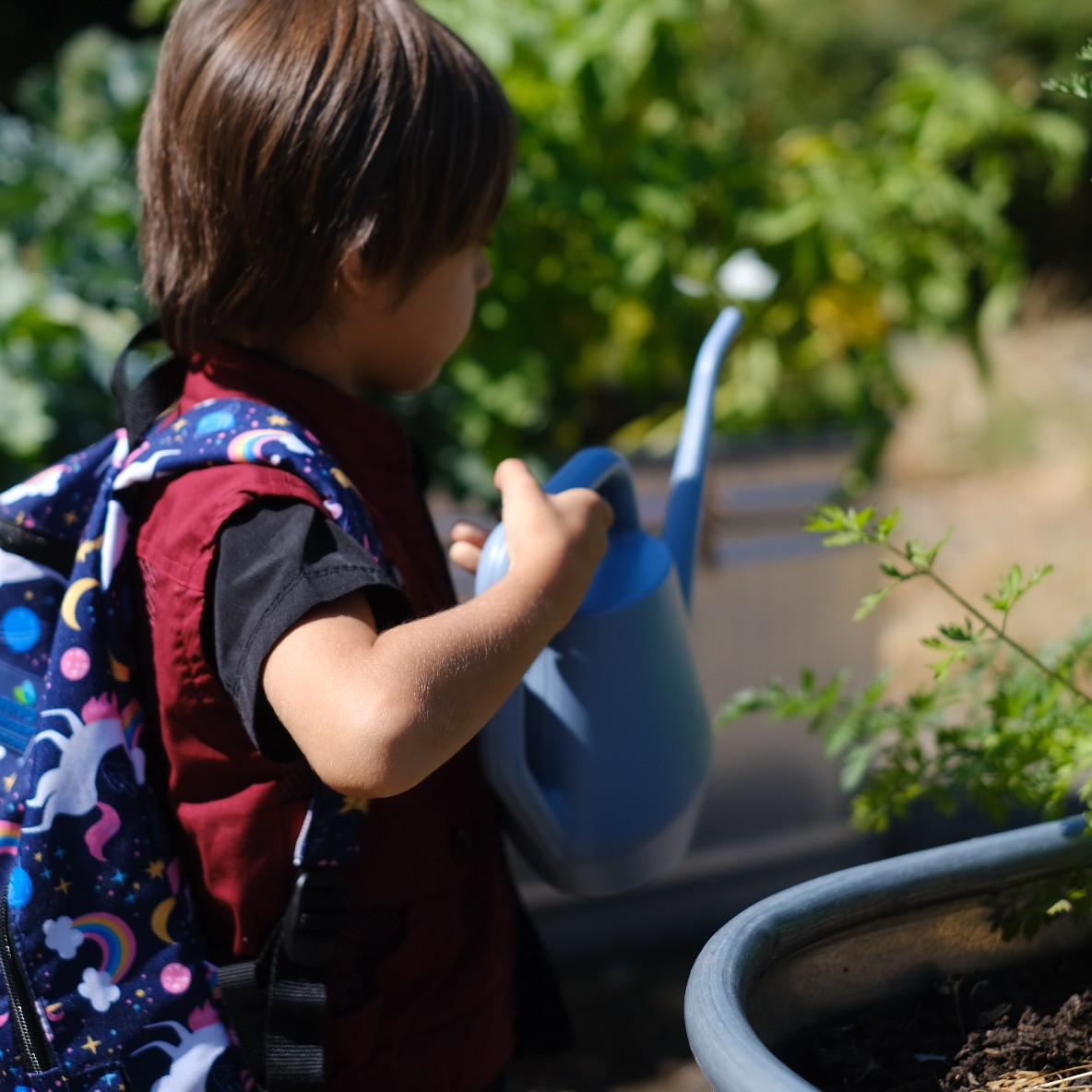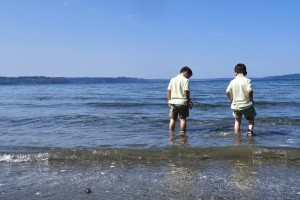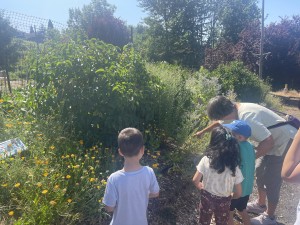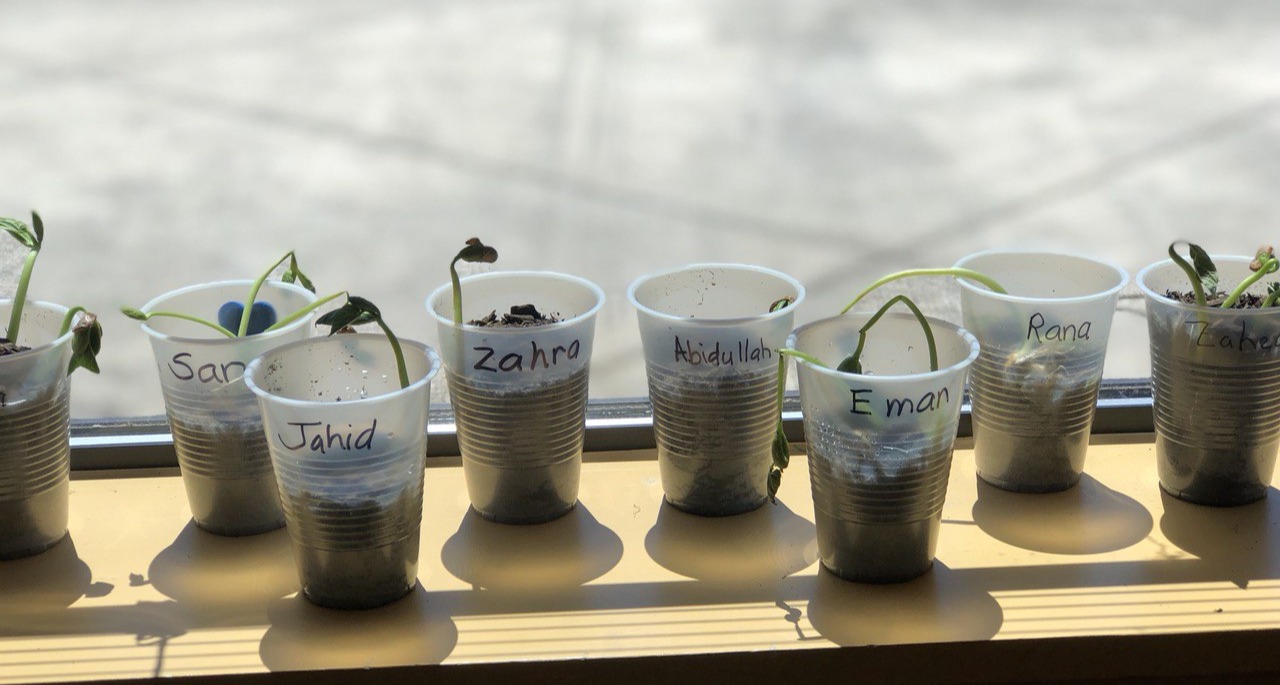To ensure refugee children are equipped to thrive in Kindergarten, World Relief Western Washington (WRWW) offers Kinders Camp, a 4-week program. While the program also aims to build foundational academic skills, it is primarily focused on supporting children’s social and emotional growth—a critical component, especially as many of these young people are preparing for their first experience in a formal educational setting.

A Structured, Fun, and Supportive Environment
Held four days a week, the program begins with a warm-up activity—often child-led and creative, such as playing with playdough—that helps students ease into the day. After a morning circle with the co-teacher, where songs and routines set the tone for the day, the students enjoy a snack, then split into two groups for a mix of structured learning and hands-on activities.
The curriculum is designed to help children prepare for Kindergarten, with targeted learning in pre-reading, math, colors, and shapes. In addition to these foundational skills, the program also offers Science, Technology, Engineering, and Mathematics activities, often led by WRWW’s Equity and Sustainability interns. An outdoor break after the more structured activities provides space for play to release energy. The program’s effort to accommodate their Muslim families’ dietary needs is particularly notable. They ensured that all food provided was halal, and sourced some lunches from a local Afghan restaurant in previous year. The day then concludes with a closing circle where students reflect on what they’ve learned and look ahead to the next day’s activities.
Reaching Diverse Communities
During the summer of 2024, the program served 23 refugee students, many of whom were referred from other WRWW programs, such as home visits and case management services. Over half had never participated in any group learning setting. About one-third of the children were newer arrivals—arriving within the last two years—and about 20 percent of the students had been in the US for six months or less. For many of these children, this program marked their first exposure to an educational environment outside of their homes.
The teaching staff, including two lead teachers, a teaching assistant, and numerous retired or current educator volunteers, worked closely with Kindergarten teachers to ensure the curriculum aligned with formal school setting expectations. The community support, from volunteers to the restaurant providing meals, was crucial to providing the children with the attention and care they needed to feel confident in their learning environment.

One of the program’s unique aspects was its ability to cater to transportation needs. WRWW worked with the Puget Sound Educational Service District (PSESD) to provide bussing through one route for most students, while volunteers and teachers supported those not on the route through carpool arrangements. Routes were carefully planned to minimize commute times.
Social and Emotional Growth at the Forefront
While much of the curriculum focuses on academic skills, the primary goal of the program is to help children develop the social and emotional skills necessary for success in Kindergarten. Many of the children have never been in group learning settings before and thus have to learn basic skills such as following directions, building relationships, and navigating the routines of a school day. By creating a safe, supportive environment, the program helps children adjust to learning in U.S. schools and school expectations.
The program also places a strong emphasis on introducing families to community resources. Given that many of the families involved have limited access to transportation, the program provides exposure to new environments such as community gardens, parks, and even the beach—activities that many of the children are experiencing for their first time alongside peers in this new home and community of theirs.
Impact on Students and Families

The program’s impact is felt not only by the children but also by their families. One mother, initially hesitant about sending her child to school due to separation anxiety, was amazed to see her child thrive in the program. In another case, a father shared his surprise when his son—who had struggled with social interactions—confidently approached a teacher and introduced himself with a handshake when they visited the school.
Families often express their gratitude for the program, noting that it helps them feel more connected to their children’s educational journey. Most parents don’t know what to expect in the American educational system, so WRWW works to involve them through newsletters, weekend activities, and follow up visits as needed. Watching their children grow and thrive also helps their families gain confidence. One father shared that he was excited to see his son bring new English skills home, where the whole family could benefit from what he learned.
Looking Ahead: Expanding Reach and Impact
WRWW hopes to expand Kinders Camp in the upcoming years, so that more immigrant, refugee and asylee families have the opportunity to support their children in gaining key Kindergarten readiness skills and having a successful start at school. WRWW is keen on strengthening the support systems available for students and parents in the areas of social emotional development and behavioral health supports.
One of Kinders Camp’s ongoing goals is to strike a balance between providing children the freedom to explore through play, while ensuring they develop the foundational skills needed for Kindergarten. Another key focus is increasing parent engagement, offering additional resources to help families navigate the transition to Kindergarten.
With a successful track record and a clear vision for the future, Kinders Camp continues to make a significant impact, fostering a sense of belonging and academic preparedness for children and their families in the community.

